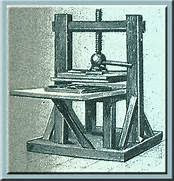(We're going a long while back for this one). One of Mr. Miller's lectures was on conglomeration. One of the things that I got out of this was the lack of diversity of content. There really is very few original TV shows and movies anymore, its all sequels and remakes (although I enjoy some of them, I do wish there was an original movie every now and then)
Here's a list of the highest grossing films of 2012(
x):
 |
| Who's ready for Avengers 2? (to be honest I am) |
1. The Avengers ($1,511,757,910)
2. Skyfall ($1,108,561,013)
3. The Dark Knight Rises ($1,084,439,099)
4. The Hobbit: An Unexpected Journey ($1,017,003,568)
5. Ice Age: Continental Drift ($877,244,782)
6. The Twilight Saga: Breaking Dawn-Part 2 ($829,224,737)
7. The Amazing Spider-man ($752,216,557)
8. Madagascar 3: Europe's Most Wanted ($742,110,251)
9. The Hunger Games ($691,247,768)
10. Men in Black 3 ($624,026,776)

Of these 10 films, 7 are sequels, remakes, or part of a saga, and 3 are based off of books. There are legitimately NO original movies in this list AT ALL. Why? Because when something is successful nowadays we milk it for all it's worth until some people can't even stand to hear the word, for example, "Twilight".
Also about TV shows, what exactly is the difference between How I Met Your Mother and Friends? (Personally I like HIMYM better but it's just my opinion). Honestly there is barely a difference between the two shows. And all of those crime scene, forensic investigative shows are pretty much the same (Psych and Bones being outliers). NCIS, NCIS L.A, CSI, CSI Miami, Law and Order, Law and Order SVU, I mean I have no idea which one my mom is watching at any given time.
These are the reasons I think we either need to stop conglomerating too many companies, or get more creative people on the job. (I mean, conglomeration only benefits the businesses anyway, we don't get anything out of it).









